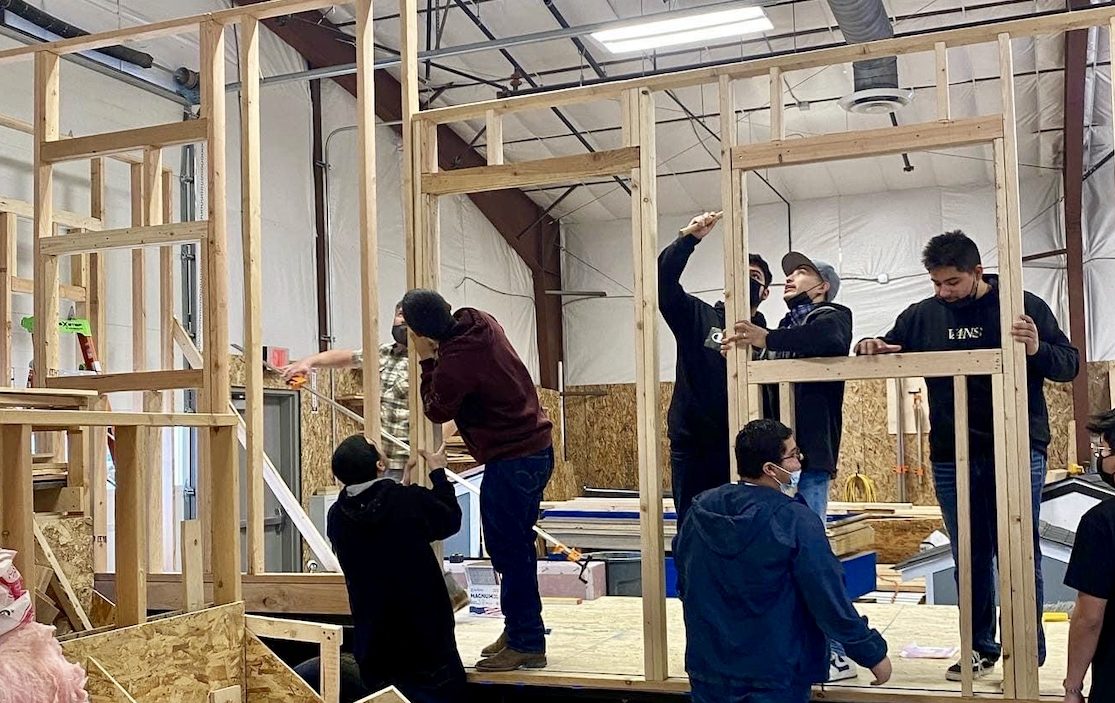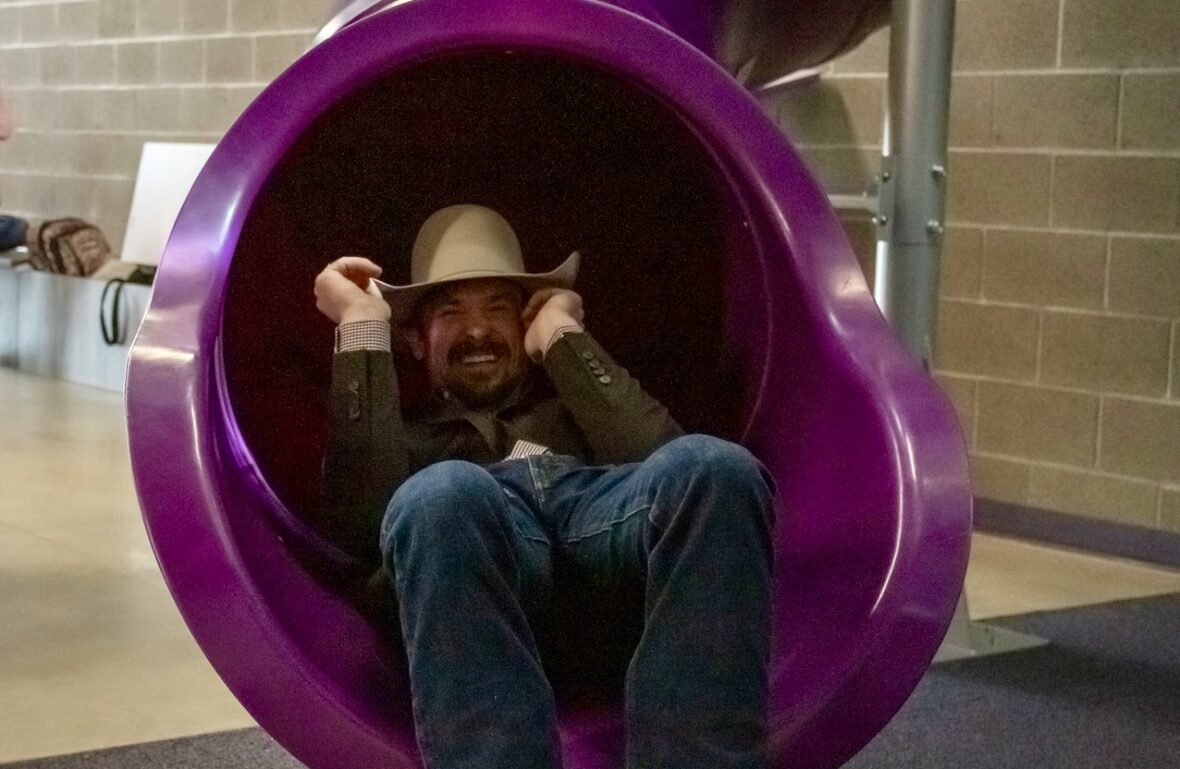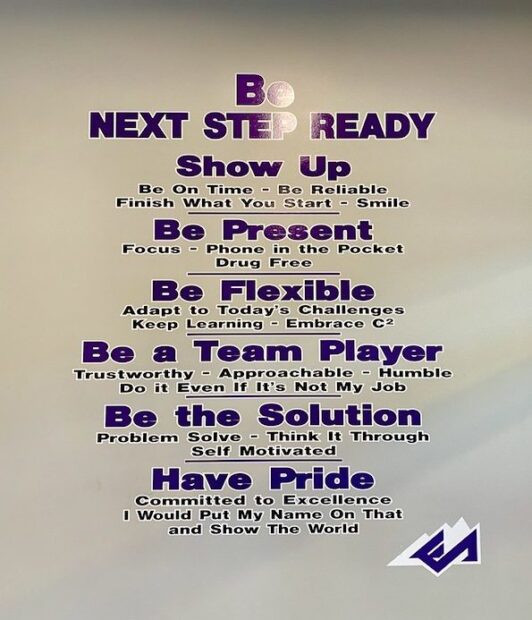CALDWELL — Longtime educators Monica White and Matt Strong knew Idaho’s school system was not working for all students. Even the state’s alternative schools, one of which the two worked at, were letting kids fall through the cracks.
“We were never happy at graduation,” said Strong. “We did what everybody wanted us to do, what the world wanted us to do. We graduated kids. But for us, it wasn’t enough.”
Frustrated with a system that left students to fend for themselves, White and Strong quit their jobs and teamed up to create Elevate Academy, changing the face of local education with an innovative model geared toward career readiness instead of college readiness.
The Elevate Academy model
Elevate is a career-technical charter school designed to remove the barriers of traditional school environments, and help students at risk of quitting school find purpose and utility in education. The school serving grades 6-12 combines state content standards with career-technical education standards. They operate on a fluid, year-long schedule to give kids structure and prevent summer learning loss.
“We’re looking at…helping kids find full time jobs with retirement plans, with benefits that pay significantly higher than minimum wage,” said White. “So that their industry certifications and the skills that they’re taking put them in a situation where they can lead a fruitful life, not just … get by.”
The school provides eight trades for students:
- culinary arts.
- emergency medical technician.
- graphic arts and design.
- firefighting arts.
- criminal justice.
- business services.
- construction.
- manufacturing.
Every student studies each trade for five weeks and specializes in one by their junior or senior year. The idea is if they take classes in each specialization for multiple weeks, the students are not only job-ready, but life-ready when they graduate.

They know basic fire safety and they can cook, save a life, fix anything in their house and run a welding torch, said White.
“They can make art … and understand how to sell and market,” added Strong. “They know how to do a checkbook.”
Math, English, social studies and science are all taught in relation to the trades. Instead of taking Algebra I or earth science, culinary students learn the chemistry of cooking, while art students learn the history of propaganda.
Even the building, according to science teacher Meggan Laughrey, reflects Elevate’s mission.
“Everything done from the color scheme that’s chosen is based on what’s best for kids, what makes them feel more secure,” said Laughrey. “The energy feels different. Even when we have days where internet is out and things are kind of crazy…it’s just different. There’s a sense of excitement with the staff and with the students.”

The building includes a fitness center, mental health services, individual showers, a laundry room and a barbershop. The school also has a two-story purple slide for students and visitors as an extra element of fun. All amenities were designed with the “whole child” in mind, working to remove barriers and add energy to the student body, according to Elevate’s website.
The students who benefit
At Elevate, criminal justice students direct traffic in the mornings and afternoons. Business and marketing students answer phones and do clerical work. Graphic arts and design students screen print T-shirts. The students have built tiny homes, dog houses and stained benches for Destination Caldwell. The founders want to “find the genius in every kid,” and give each student a purpose.
Elevate is for students who meet the state’s “at-risk” criteria and are not finding success in a traditional school environment. But Strong and White emphasize that they don’t call Elevate an “alternative school,” because the term often carries a stigma that impacts kids and parents.
“We really want every kid to feel like it’s just a place for them,” said White. “You get those stigmas of ‘it’s a place for a bad kid.’ Well, there’s no such thing as a bad kid. There isn’t.”
Strong and White focus on the “human element” of education, working to fill the needs of their students. The founders deal with each student on a case-by-case basis, thinking creatively about how to target their needs and provide them the most help. Students were hired in HR positions last year, but had no office-appropriate clothing. The Elevate team used the school’s scholarship fund to buy new clothes for the students, removing a barrier that could have jeopardized their jobs.
“We’re gonna give them resources, from laundry to food to extra transportation, whatever a kid needs,” said White. “Any barrier that needs removed, we’ll remove it.”
The founders apply this approach to discipline as well. The school operates on a no-suspensions policy, and most disciplinary issues are handled at the lowest level with restorative, rather than punitive, solutions. So far, there have been no major offenses at the school, according to White and Strong.
Culinary arts graduate McKinley Nipper attended other schools, but believes Elevate helped her the most.
“They didn’t treat us like just regular students,” said Nipper. “We all bonded together as a family…I really love that school…it really helped me in a lot of ways.”
The school admits students via a traditional lottery process. Strong and White meet each student’s parents or guardians for an intake meeting. At the end of the 2021-22 school year, Elevate Caldwell had 400 students on the waitlist, nearly as much as the total enrollment. The Nampa and North Idaho locations, set to open this fall, each have at least 100 on their waitlists.
How Elevate measures success
Elevate’s teaching model gives students purpose and passion in the classroom, according to Strong and White. But Elevate students do not perform well on standardized tests. Last year, only 29% of students demonstrated proficiency in English and language arts, while only 8% demonstrated proficiency in math.

The founders say improving test scores isn’t Elevate’s primary focus. The school’s mission is to ensure every graduate is “next-step ready,” a term used to highlight that college is not the only option for graduating seniors. The founders measure the school’s success largely through career placement. They also track reading and classroom engagement over time, measuring students’ progress rather than one-time scores.
“You’d be surprised how many students who get to our level think, ‘why do I need to read, I’ve made it this far?'” said White. “Then when you start breaking down, you’re gonna have to set lease agreements and you’re gonna buy a car…things that are truly meaningful and personal to them. Then all of a sudden…the skill that they’ve struggled with forever becomes a little bit more important.”
Elevate’s first graduation was in June. Around 80 students received diplomas, and each graduate either has a well-paying job with a 401(k) and benefits, is enrolled in a postsecondary program or is enlisted in the military. Every student’s next step is verified through the school.
If a student does not have a plan or theirs falls through, they are invited to return to Elevate until they find something else.
“It takes all types of people and skills and talents to make the world work,” said White. “We take care of them until they’re ready to launch.”
